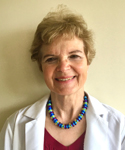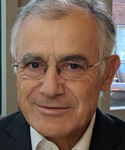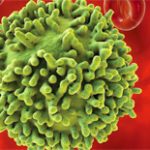Rheumatology leaders at Beth Israel Deaconess Medical Center, Boston, are working in close collaboration to adapt to changes in response to the COVID-19 pandemic. Lisa Fitzgerald, MD, acting clinical chief, Division of Rheumatology and director of the Lupus Center, and George Tsokos, MD, professor of medicine at Harvard Medical School and chief of the Division of Rheumatology and Clinical Immunology spoke with The Rheumatologist about how the pandemic is affecting their practice.
Q: How are you and your staff adapting to the sudden changes brought about by the pandemic?
Dr. Fitzgerald: We have tried to adapt to the changes since the coronavirus crisis emerged in a variety of ways. Things are changing, sometimes on a daily basis, and definitely on a weekly basis. Between one and three of our physicians have been in the office Monday through Friday to help the nursing staff with questions and sign documents and prescriptions. Everyone working from home is in touch with the office by phone and email.
Our staff members are calling patients daily to confirm their participation on video or telemedicine visits now and to reschedule them for future appointments in the office much later in the spring or summer. We hold teleconference calls every afternoon, and this call is to inform our staff on guidance and decisions made on a daily basis by the department of medicine and the hospital and to discuss issues that arose during the implementation of telemedicine. We also compare notes on scientific data and resources we have heard about, such as the new COVID-19 Global Rheumatology Alliance’s patient registry , and about drug shortages, such as hydroxychloroquine [HCQ]—especially during the first two weeks of the crisis.
Q: How is your research being affected by COVID-19?
Dr. Tsokos: We first organized the care of the animals. We appointed a minimal number of members to visit the animal room and perform whatever is needed to keep the colony. We decided not to start new experiments and not to initiate new breedings. Only long-standing experiments [have been] allowed to continue. The goal has been to limit the number of people, both researchers and animal facility staff, needed.
In the lab, I allow only a few people in every day and not to work in the same bay. We use teleconference for our weekly journal clubs, grand rounds and lab seminars. In parallel, the senior investigators meet weekly virtually to discuss plans, papers and grants, and analyze data we had accumulated. We have a limited number of clinical trials that we continue at a minimal pace. Some have been modified by the sponsors’ limited activities. Obviously, no new enrollments are taking place.





